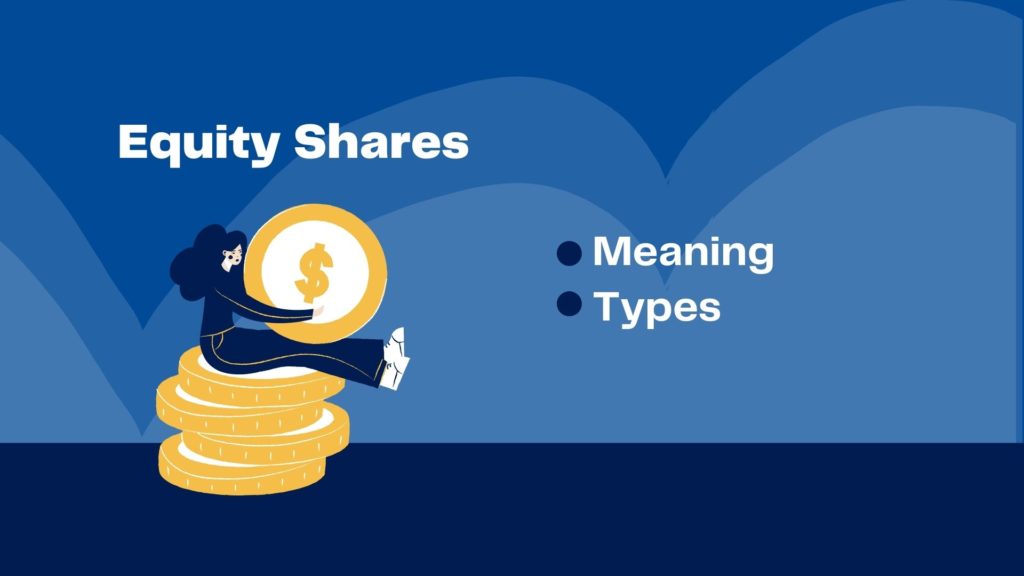Meaning of Equity Shares | Types, Advantages, and Disadvantages of Equity Shares
Table of Contents
Meaning of Equity Shares

Definition of Equity Shares
Equity shares are also known as ordinary shares. Companies Act defines equity shares as ‘those shares which are not preference shares’.
The above definition reveals that :
a) The equity shares do not enjoy preference for dividend.
b) The equity shares do not have priority for repayment of capital at the time of winding up of the company.
Equity shares are fundamental source of financing business activities. Equity shareholders own the company and bear ultimate risk associated with the ownership. After paying claims of all other investors the remaining funds belong to equity shareholders.
Thus equity shareholders are ‘residual claimants’ of the income and assets. Equity shareholders do not carry any fixed commitment of dividend. They are paid dividend at the rate recommended b Board of Directors. If there is no profit, no dividend will be payable. Similarly, if there is less profit, lesser dividend will be paid. Thus the fortune of equity shareholders is tied up with the ups and downs of the company. If the company is successful, they enjoy great financial rewards and if the company fails, the risk falls mainly on them. It is exactly because of this position equity share capital is known as ‘venture capital’ or ‘risk capital’.
The owners of equity shares are real risk bearers. However, equity shareholders participate in the management of their company. They are invited to attend general meetings. They are allowed to vote on all matters discussed at the general meeting. They elect their representatives to manage the company. Equity shareholders are thus real owners of the company.
Types of Equity Shares
The equity share can be of two types :
a) Equity shares with normal voting rights: Voting right of such equity holders is in proportion to his shareholdings.
b) Equity shares with differential voting rights: Such equity holders shall have varying rights regarding dividend, voting or otherwise in accordance with Rule 4 of Companies (Share Capital and Debentures) Rules 2014. Thus company can issue shares with limited voting rights or no voting rights. They may be entitled to an extra rate of dividend, if any.
Advantages of Equity Shares
- The company has no immediate liability to pay it.
- No fixed dividend obligation.
- Increases creditworthiness of business, ceteris paribus.
- No charge created on assets of the business.
- Shareholders control the company.
- Limited liability of the investors.
- High dividends.
- No collateral security needed
- Increases firm credibility
Disadvantages of Equity Shares
- Equity dividend, not tax- deductible.
- High cost of equity issue.
- Gradual dilution of shareholder’s control over business.
- Manipulation by a few shareholders.
- Dividend at the discretion of the Directors.
- Very risky investment.
- Residual claim on investments.


